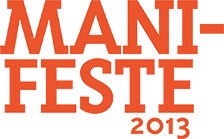We took advantage of the Quebecois professor Milad Doueihi to ask him a few questions. Milad Douehi is holds a chair of digital culture, he is the world specialist of issues connected to digital technologies, historian of religions, and professor in the literature department at Laval University. Douehi has written extensively on the themes of our think tank. Notably in his book La grande conversion numérique in which he has dedicated a chapter to archiving in the future.
You recently addressed the status of forgetting in the digital age. Can you tell us your thoughts?
What is striking is that digital technology is anchored in the information culture. In this context, there is no way to think of forgetting beyond a technical failure. Without forgetting, humans could not function. There is a specificity in the use of our memory: we can forget a piece of information and then remember it again later. In the digital structure, this is not the case; we can not go backwards. The status of memory is changing because we are moving towards a model imposed by technology.
What are the consequences of this change?
It results in attaching too much importance to archiving data. Before the digital era, what survived became our heritage. With digital technology, we can not carry out this kind of strategy. We must chose what we should archive and maintain. There is a reversal of perspectives that is being put into place. However, it is very difficult to decide what is important or not. There are so many examples in history! Things that were crucial and became minor, and other things that were marginal and became decisive in retrospect. The choice becomes more and more difficult. We must create a social dialogue on the theme of “how to manage our memory to conserve it”.
Waiting for this pubic debate, what coherent strategy for storage do we have?
Very recently, we had the illusion that we could store everything. We discovered shortly after this that it wasn’t possible. Today, we have to choose. The obvious example is the archival storage of the French Internet. It is so complicated for the BNF (French national library) to decide on the proper perimeter. We enter a grey area where archives are no longer personal or institutional. We have to reinvent strategies that are better adapted to the constraints and reality of digital culture. Since 2006, we have entered into the phase of the social network. Internet users create biographies that are shared. Before, they were only in an intimate space. These content platforms have become so imposing that we have lost the control of the photographic, video, and text data.
Who does this data belong to?
Most of it belongs to private companies. And yet, these companies could disappear; this already happened in the recent digital era. The data is lost with the company. The data can also be used for commercial means. We presuppose an intention with an archival trace. But I am not convinced by the absolutism of the promises connected to statistical models. We must look at how they were constructed. Likewise, we could change to a prescriptive model rather than remaining with predictions. Google, for example, is becoming a recommendation engine. It is no longer just a search engine. What is troubling is that this modifies the relevance model.
A model that relies in part on a unique digital encyclopedia from elsewhere?
Wikipedia, which I have admired since its beginnings, is not exactly a unique encyclopedia because it exists in several languages. When comparing files from one idiom to another, we see several differences. But in my eyes there are two problems: the writing is based on a model of objectivity that we inherited from the 19th century. Wikipedia therefore proclaims that it only reflects the state of today’s knowledge. We know very well that this is never the case. The references from the search engine gives it a privileged status. That being the case, the responsibility linked to the participatory model must be rethought. This model that consists of accepting an article based on its references is no longer appropriate. The metric of legitimacy is modeled on the scientific article. But, in reality, this does not suffice to guarantee the chain of knowledge and its production.
For you, what is the status of the conservation of digital memory?
There are always means of conservation. Even in ancient times with the codex or carvings in stone. Digital technology has its own abilities and its own weaknesses. But for the first time, we are using the same technology on a global scale; a small number controls the same platforms. Before the conservation was more spread out, there were forms of autonomy, forms of localism that enabled variations. We see the dynamic between this global dimension and a return to localism. In antiquity, we were in an era of rarity. Today, we are in an era of overabundance, but with a rarity of platforms.
Further Information: Chair of Digital Culture Website

